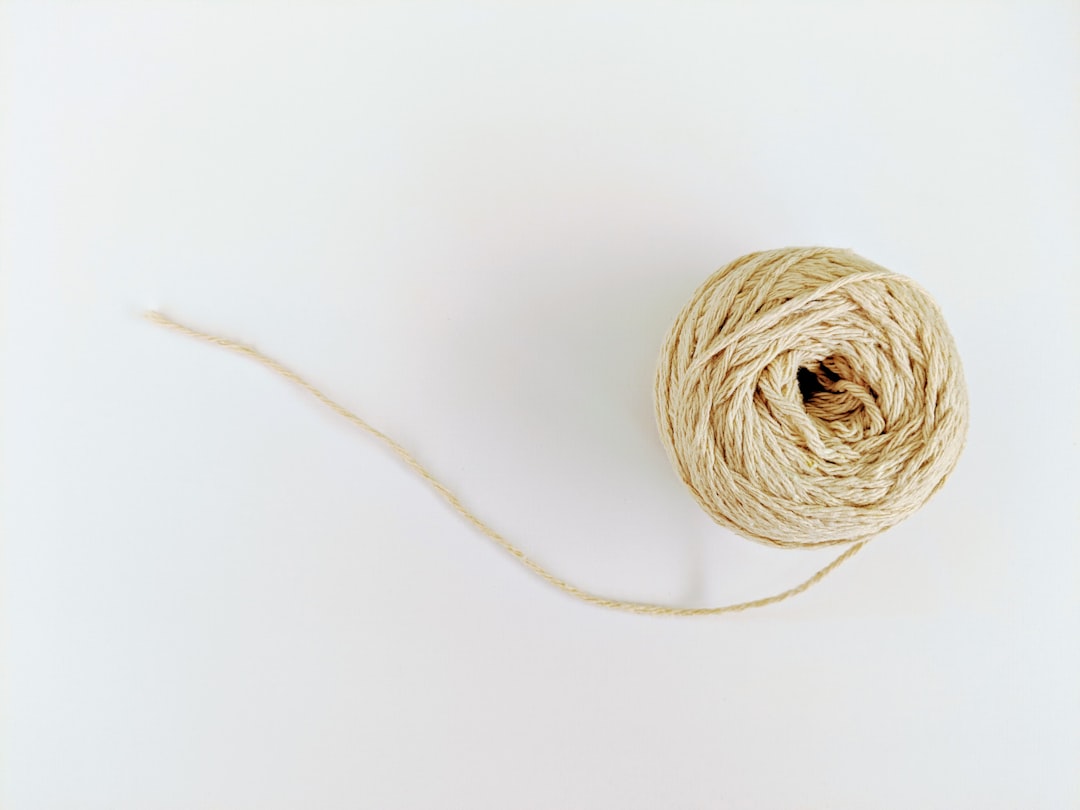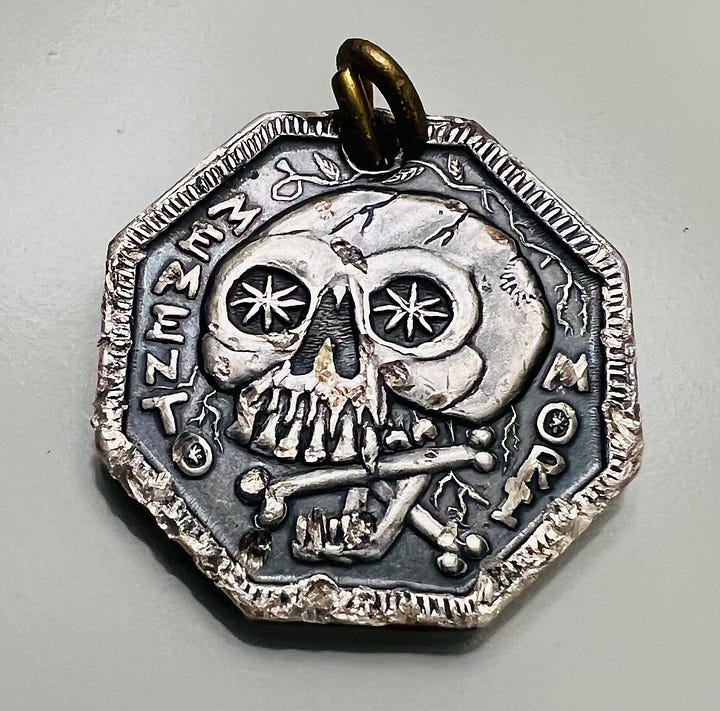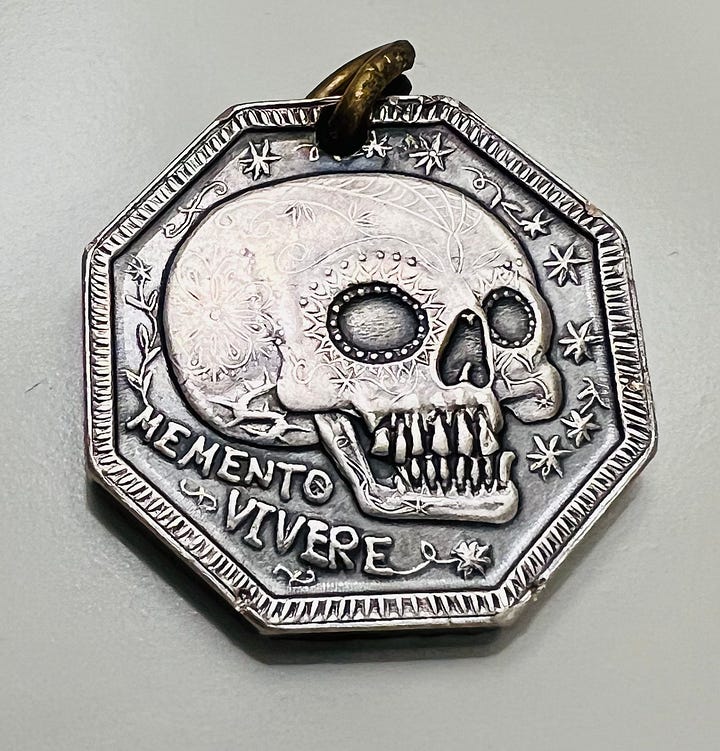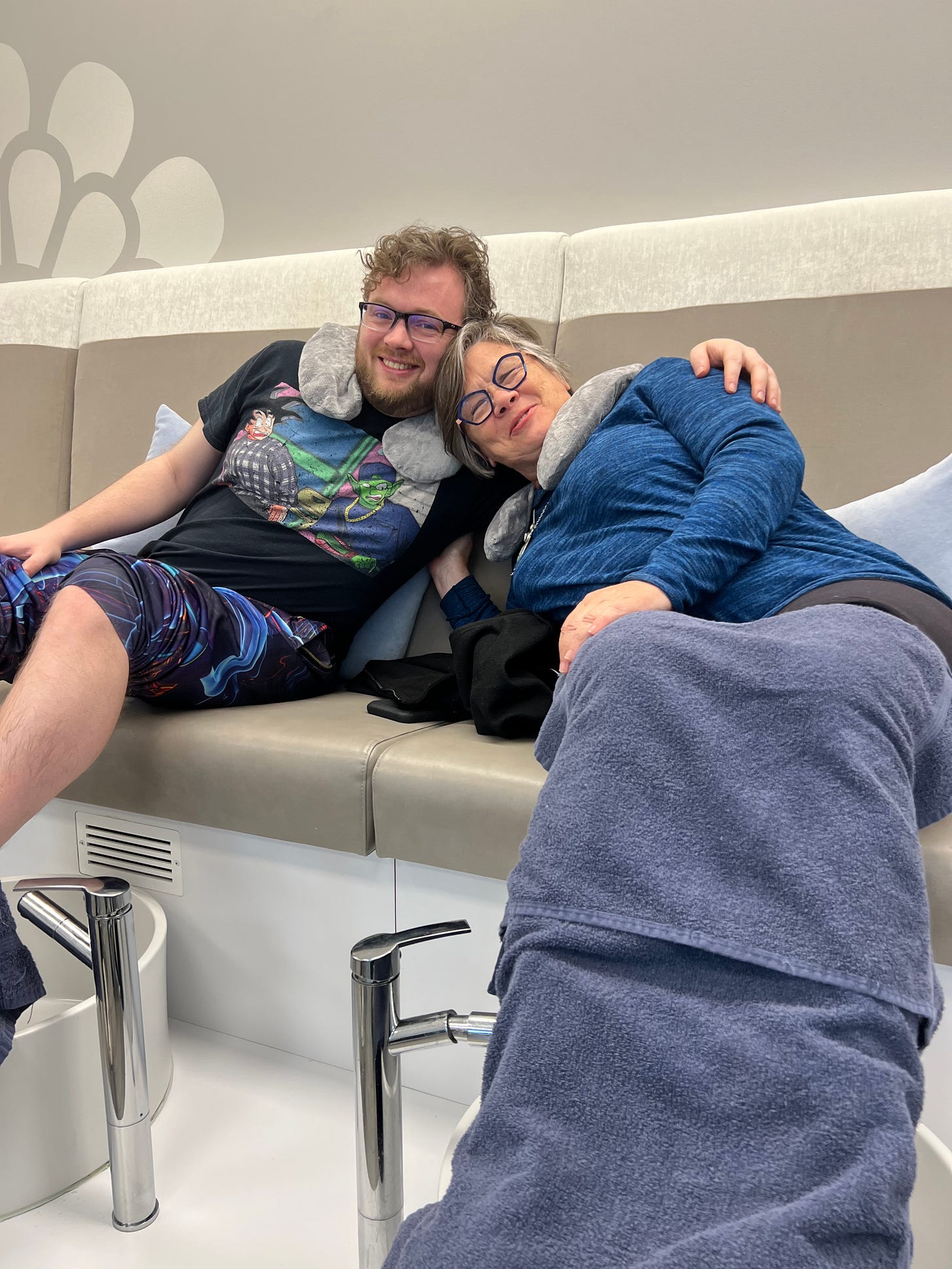This is 61
Memento mori, memento vivere
I just had my best birthday. My elder son took me to lunch, followed by pedicures. My younger son took me to dinner. They each sang the birthday song and gave me their undivided attention. There is nothing more this mother could ask for.
Bucket-Lister or Legacy-Builder?
I live in a condo with some of the most interesting people on the planet. The women gather in small groups on Thursday nights for what we call Ladies’ Night In (LNI) to talk about whatever comes up and enjoy the hospitality of our hostesses. This week at LNI, nine of us sat in Jane’s comfortable living room eating hors-d’oeuvres from glass plates (because really, who deserves flimsy ones?).
Three of us celebrated January birthdays, and our group conversation turned to what we might do with the rest of our lives. One of the January birthday girls, Judy, told us about a book that explores the issue. The Measure, by Nikki Erlick, tells a story where everyone in the world over the age of twenty-one receives a box containing a piece of string. Just a piece of string. What are they to do with it?

In time people learn that the length of the string accurately forecasts how long they will live. The book follows characters making deeply personal choices with this knowledge, but what gave me a sucker punch was Judy’s description of social mayhem as politicians and policymakers debated whether string length should determine eligibility for health care, food, and education. I could totally imagine such talk.
This is when LNI once again turned into a philosopher’s club. Someone asked, “If you knew how long you'd live, what would you do?”
Some of my friends ticked off a bucket list of destinations and experiences, only to be challenged by others who wondered why they would waste their last days in self-indulgence. “You can’t take that with you!”
One of my more skeptical neighbors noted the absence of humanitarian items on bucket lists, and up went a collective gasp of self-awareness (and perhaps shame).
Joan had faced this question six years ago when she’d been given five years to live. Some day she might face a choice between a lung transplant and hospice care. “Every day is a gift,” she said. “I’m not going to spend my time looking back at missed opportunities or thinking about the things I can no longer do.”
Since Judy had read the book, she’d had more time than the rest of us to consider her answer. “I’ve seen what I wanted to see and done almost everything worth doing.” She wants to spend her time deepening relationships with family and friends—that’s her legacy.
I’m a hybrid bucket-lister and legacy-builder. I have traveled more than the average American—most of whom don’t own valid passports and many of whom have visited only a dozen American states. Still, I long to see more of this world, not for the Instagrammable moments, but because travel broadens my horizons and fuels my work, which is an important part of my legacy.
Can we talk about this?
How about you? Would you reconsider your priorities if your piece of string was a month long? A year long?
Why? After all, it’s no secret that none of us are staying on the earth forever (check out Tuck Everlasting). Do we need a memento mori1 to help us become our best selves? I guess a piece of string would suffice.
Ever notice the prevalence of skulls and bones in motorcycling imagery? When you decide to ride a motorcycle you’re going to hear a lot of scary warnings about it. Using a memento mori is a way to embrace the inevitability of death. I have a friend who hopes to die on his bike. “I want to eat the world’s best cheeseburger, then saddle up with the final memory of the wind in my face and a beautiful sunset in my eyes.”


I’ve pictured here a little coin that captures the intention of memento mori as I interpret it. One side says memento mori and the other says memento vivere. Taken together they mean, “remember that you have to die, and remember that you have to live.”
More about The Measure
The Measure was a Jenna Book Club Pick. Here’s an excerpt from the NYT Book Review’s take on the book on June 28, 2022.
Some people choose to look at their strings; others throw the unopened boxes off bridges, preferring not to know how much time they have left…
Erlick is less interested in technicalities than in the strings’ impact on her characters. Hank, an E.R. doctor whose life is spent handling other people’s deaths, must confront his own. In a romance where one string is much shorter than the other, Nina and Maura debate whether to marry and have children. Aimless young Jack finds direction when his uncle, a ruthlessly ambitious presidential candidate, starts spouting incendiary rhetoric against people with short strings. Two strangers, finding themselves accidental pen-pals, forge an intimacy that will have enormous consequences. Prejudice against short-stringers gains traction — their despair is seen as dangerous—while Jack’s uncle and other politicians make hay from the long/short divide, and a weekly support group for short-stringers becomes a makeshift family.

Latin for “remember you have to die.” It is a medieval Latin Christian theory and practice of reflection on mortality.



Tamela, this has given me lots to think/write about. I will be 61 very soon and I hope to enjoy my day with my 2 boys. And the mention of Tuck Everlasting was the icing on the cake.